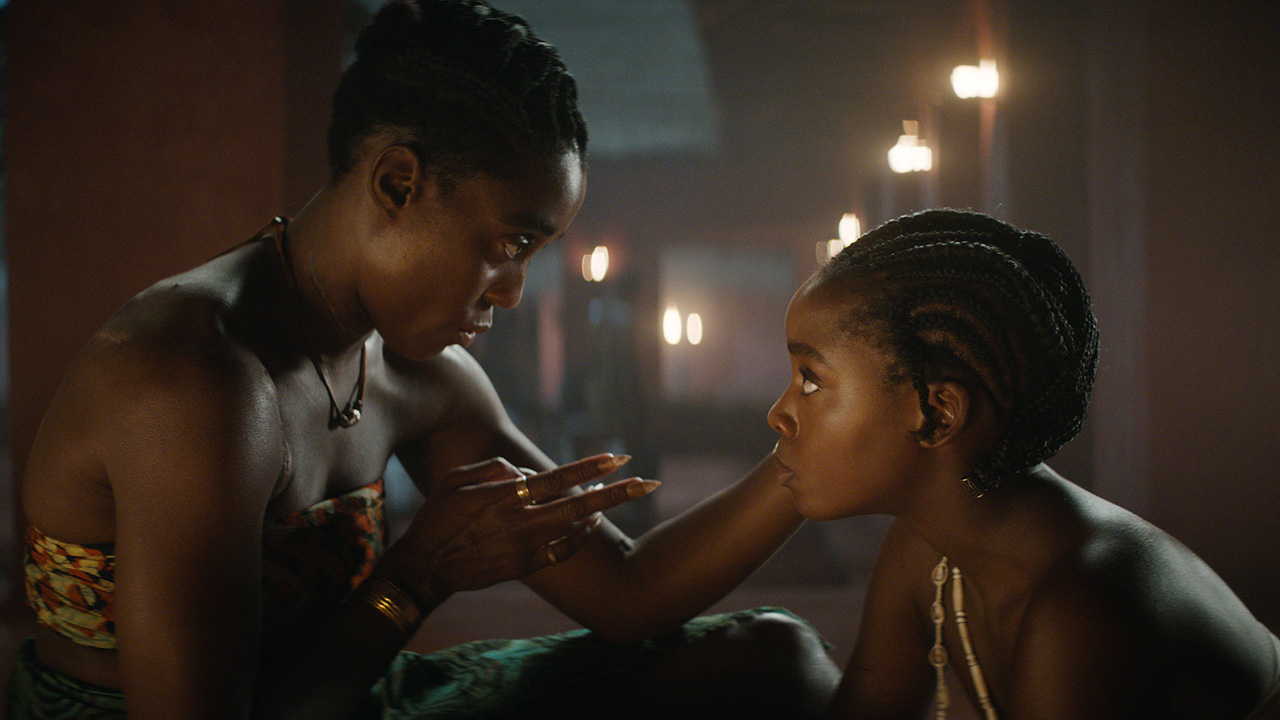Gina Prince-Bythewood’s The Woman King is a stellar historical epic, but like the historical epics that inspired the director such as Braveheart, Gladiator, and The Last of the Mohicans it must be noted that the “history” part of the epic is given over to creative licence rather than exploring in depth the reality of the events that informed the works.
Set in West Africa in 1823 The Woman King follows the trials of an all-woman elite fighting force known as the Agojie the fierce protectors of the Dahomey Kingdom. Led by General Nansica (Viola Davis), the Agojie are revered in the kingdom for their skill and resolute bravery. Nansica is treated with respect by Dahomey’s young King Ghezo (John Boyega) because she assisted in the coup that put him on the throne. Nansica is trying to offer solutions to Dahomey’s complicated relationship with slavery – a practice that the kingdom has long indulged in for profit. Her words are considered by Ghezo who is fearing the influence of the European and American trade on his kingdom but is also preparing for all-out war with the rival kingdom of Oyo whose power is growing due to their openness to embrace the slave trade and the advanced weaponry and wealth that come with it.
After a brilliantly choregraphed night-time raid on a tribe loyal to the Oyo which leads to the slaughtering of all the men, but the preservation of the women, Nansica returns to Dahomey to train new recruits. Amongst them is the headstrong Nawi (Thuso Mbedu) who was given in frustration to the king by her father who could no longer tolerate her refusal to marry the suitors he chose for her. Initially intended to be one of King Ghezo’s many brides Nawi is spotted by the high ranking Agojie warrior Igozie (Lashana Lynch) who forms a touching mentor bond with her. Nawi also attracts the attention Nansica who finds herself bristling at the young woman’s insolence yet feels inexplicably drawn to her.
Gina Prince-Bythewood working from a script written by Dana Stevens from an idea conceived by Maria Bello, is interested in both action and emotional interiority. As an action film the piece is almost flawless – Polly Walker’s cinematography and Terilyn A. Shropshire’s editing capture kinetic and brilliantly choreographed set pieces. In terms of spectacle The Woman King far outweighs many mainstream actioners because it is doing so much with ostensibly so little. The action revolves around the sheer skill and physicality of the Agojie and when they are in flight it is impossible to take your eyes off the astonishing combat sequences.
As for emotional interiority, the film stumbles occasionally into melodrama. A romantic subplot for Nawi with the half Brazilian, half Dahomey slaver (with a conscience) Malik (Jordan Bolger) slows down the film. A better representation of the emotional state of the characters is found in the sisterhood and found family of the Agojie. Nansica is suffering from trauma due to her being captured and abused by the Oyo in her youth, especially the violent assault she endured under Oba Ade (Jimmy Odukoya). Even the gentle ministrations provided by her friend and advisor Amenza (a stunning Sheila Atim) can’t quiet her need for revenge. Igozie reveals to Nawi that her mother tried to sell her virginity at the age of twelve, and she has decided it is better to laugh than cry at the injustices of life. Another of the new recruits reveals that she is with the Agojie because it is better “to be a hunter than hunted.” Each of the women have stories and many have trauma; the Agojie is a means of liberation for them and a way to find respect in a culture that is dominated by men.
Viola Davis is excellent as Nansica, a battle-weary survivor. Her physical transformation for the part is incredible, as too her full-bodied combat scenes; but she also carries herself as a woman who is complex and deeply intelligent. Thuso Mbedu’s Nawi may seem like a slightly clichéd character (young and rebellious recruit who turns out to be the best – yes we have seen this before) yet the layers of her anger and pain come with a strong desire to be extraordinary not just for herself but for her sisters in battle. Mbedu who was so effective in Barry Jenkins’ The Underground Railroad series is very much a star in the making. Lashana Lynch and Sheila Atim both deliver powerhouse performances with Lynch being a scene stealer. Prince-Blythwood understands that her film is about the power of Black women and allows her leads indelible moments. Boyega gives a solid turn as the changeable King Ghezo but the movie doesn’t focus on him as much more than a figurehead who requires the wisdom of Nansica. Hero Fiennes Tiffin’s one-note Brazilian slaver villain, Santo Ferreira acts more as a plot contrivance than a fleshed-out character – although it is essential to note that Ghezo is reliant on his goodwill.
The attention to detail in Gersha Phillips’ costuming is exquisite and the overall production design is faultless. Dahomey was known to be progressive in terms of its valuing of the arts and music, and there are sections of the film where a full-throated celebration is almost as stirring as the outstanding action scenes.
Although, as previously mentioned, The Woman King is not really historically accurate, it remains a rousing film that proves that the stories of underrepresented women can translate to blockbuster entertainment. From small independent films (Love & Basketball) to women led actioners (The Old Guard) Prince-Bythewood demonstrates enormous skill as a director. The Woman King is her magnum opus and even with some issues with pacing, historical revisionism, and unnecessary subplots, the film is exciting and cheer-worthy. It’s a beautiful production that garners admiration especially for the woman protagonists and the astounding attention to detail in recreating a period of African history which is vital to the understanding of Black identity around the world.
Director: Gina Prince-Bythewood
Cast: Viola Davis, Thuso Mbedu, Lashana Lynch
Writer: Dana Stevens, (based on a story by Maria Bello and Dana Stevens)



